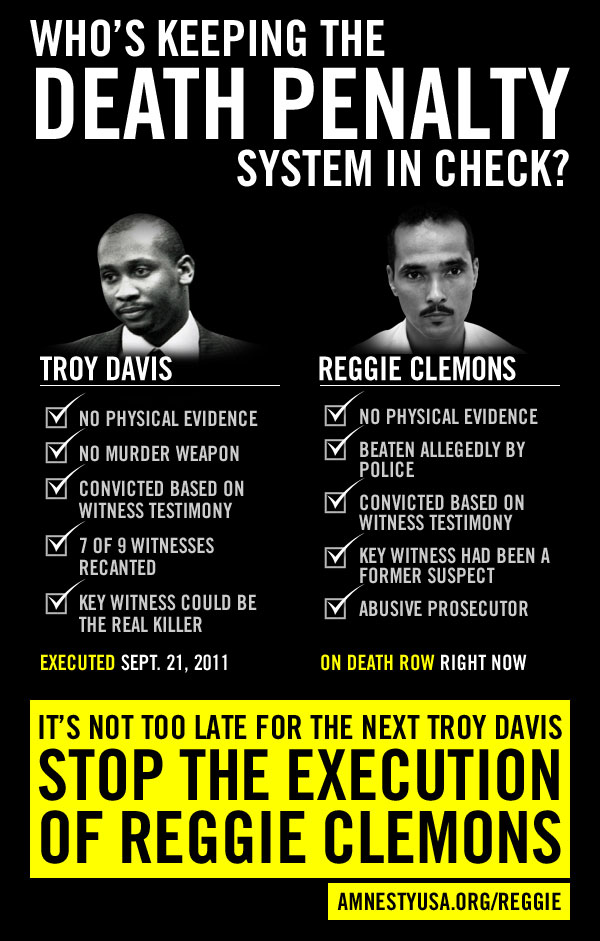
The Wynne Unit in Huntsville, one of the seven prison units in Walker County, Texas. Texas is preparing to execute its 500 convict since the death penalty was restored in 1976, a record in a country where capital punishment is elsewhere in decline. (Photo Credit: Chantal Valery/AFP/GettyImages).
By MbaLuka Michael Mutinda, Youth Activist and AIUSA Ladis Kristof Fellow.
On Wednesday, Kimberly McCarthy may eat her last meal. Barring a last-minute stay, she will be led down the hallways of Huntsville Penitentiary, make a last statement, and be given a lethal injection that will stop first her breathing and then her heart. She will be Texas’ 500th execution.
The death penalty is emblematic of the many problems still prevalent, not only in the American justice system, but in society as a whole. Capital punishment is racially and economically biased. It places more value on some victims over others. Since 1976, 260 black defendants have been executed for murdering white victims, but only 20 white defendants have received the same sentence for murdering black victims. Death sentences also depend more on geography than the severity of a crime.
And yet, death sentences can be wrong. In the last 40 years, 142 death row inmates have had their innocence proven. This margin of error alone should awaken us to the deep flaws in the system. You cannot have absolute punishment without absolute certainty.






